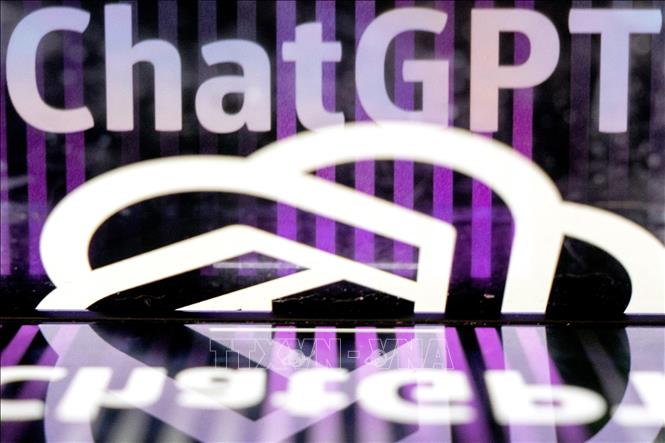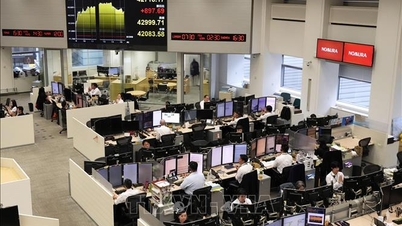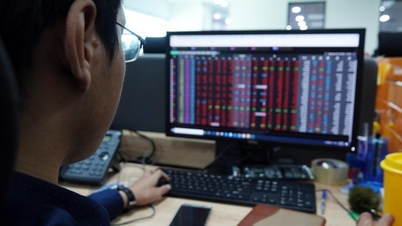
According to a survey, at least 1 in 10 individual investors have used ChatGPT to make investment decisions. However, even supporters of this trend admit that it is a high-risk strategy and cannot replace traditional financial advisors.
Thanks to the development of artificial intelligence (AI), anyone can choose stocks, track price movements and receive investment analysis - services that were previously only in the hands of large banks or institutional investors, according to Reuters news agency.
The robo-financial advisory market – which includes platforms that use algorithms to make investment recommendations in fintech, banking and wealth management – is expected to grow from $61.75 billion last year to $470.91 billion by 2029, a growth of about 600%, according to data analytics firm Research and Markets.
Jeremy Leung, a former analyst at UBS for nearly two decades, said he has switched to using ChatGPT to track stocks in his multi-asset portfolio since leaving the bank earlier this year.
“I no longer have access to paid data like Bloomberg or other expensive services,” said Mr. Leung. “With AI, even a simple tool like ChatGPT can replicate many of the analysis processes I used to do.”
However, he also warned that the tool could miss important insights because it doesn't have access to in-depth paid data.
Still, Leung relies heavily on ChatGPT—and he's not alone. The AI investment advisory industry is growing at a rapid pace.
According to a survey of 11,000 global investors by brokerage eToro, 13% said they had used ChatGPT or Gemini (Google's AI tool) to select or adjust their portfolios. About half of those surveyed said they planned to use these tools in the future. In the UK, another survey by comparison company Finder found that 40% of respondents had used chatbots or AI for personal financial advice.
However, ChatGPT itself advises users not to consider it as a source of professional financial advice. OpenAI, the company that owns ChatGPT, has not yet released data on how many people use the chatbot for investment purposes.
“AI models can be great, but the risk arises when people treat general models like ChatGPT or Gemini as crystal balls that predict the future,” warns Dan Moczulski, UK CEO of eToro. He argues that it is best to use AI platforms that are specifically trained for financial analysis, as general AI models can misquote data, make misleading predictions, and rely too much on past price data.
In March 2023, Finder asked ChatGPT to select a portfolio of 38 stocks based on criteria such as low debt, sustainable growth and competitive advantages. The portfolio, which included big names such as Nvidia, Amazon, Procter & Gamble and Walmart, has risen nearly 55% year to date – about 19 percentage points higher than the average of the 10 most popular stocks in the UK.
Experts admit that the US stock market is at record highs and seems less affected by volatile economic data. However, investing based on ChatGPT still requires investors to have certain financial knowledge.
Jeremy Leung says the way to get the most out of AI is to provide as much context and detail as possible. He often enters requests like, “Assume you are a stock analyst, what is your short-term prediction for this stock?” or “Please refer to data from SEC filings.”
However, risks remain. “If people feel too confident about investing in AI and making money, they may not be able to handle it when the market falls into a crisis or recession,” Leung warned.
Source: https://baotintuc.vn/kinh-te/chatgpt-va-con-sot-tu-van-ao-tren-thi-truong-tai-chinh-20250925151551422.htm





![[Photo] Chu Noodles - the essence of rice and sunshine](https://vphoto.vietnam.vn/thumb/1200x675/vietnam/resource/IMAGE/2025/11/11/1762846220477_ndo_tl_7-jpg.webp)

![[Photo] Prime Minister Pham Minh Chinh chairs a meeting on housing policy and the real estate market.](https://vphoto.vietnam.vn/thumb/1200x675/vietnam/resource/IMAGE/2025/11/11/1762838719858_dsc-2107-jpg.webp)



























































































![Dong Nai OCOP transition: [Article 3] Linking tourism with OCOP product consumption](https://vphoto.vietnam.vn/thumb/402x226/vietnam/resource/IMAGE/2025/11/10/1762739199309_1324-2740-7_n-162543_981.jpeg)








Comment (0)